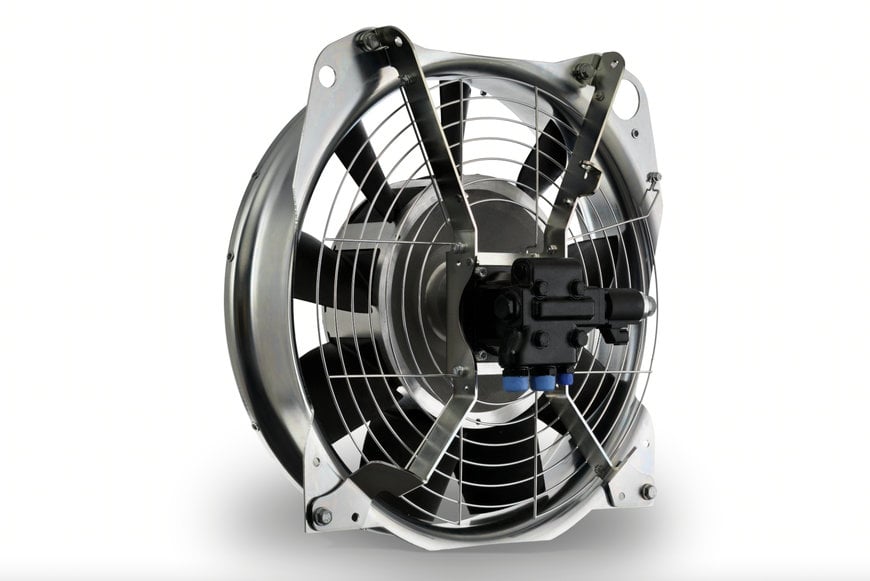railway-international.com
28
'23
Written on Modified on
Innovative cooling system for 700 Vario Gen7 once again based on Voith’s fan technology
High-performance fan reduces energy and fuel consumption, making a key contribution to CO2 reduction. Special blade and fan housing geometry reduces noise emissions from entire unit.

With its background in the rail vehicle industry, Voith is a global leader in the development of highly efficient fan units for cooling systems. This expertise will now be used in another range of tractors. The fan unit for the Fendt 700 Vario Gen7 is decoupled from the engine speed through its own hydraulic motor and therefore reduces the necessary energy and fuel consumption by more than half compared with standard fans.
The key component of Fendt’s Concentric Air System (CAS) is the fan unit developed by Voith, which is positioned in front of heat exchangers and diesel engine in a forced-draft configuration. As a result, cold air with a higher density is drawn in from outside the vehicle and further compressed by the high aerodynamic efficiency of the fan unit. Compared with the intake configuration previously usual in tractors – where a fan is positioned directly in front of the engine or behind the cooling pack – this arrangement increases the pressure and therefore allows for an enormous volume flow.
Without large cooling assemblies, the CAS can be designed to be much more compact, allowing the entire system to be located closer to the driver’s cab. The shorter and narrower engine hood increases the driver’s line of sight over the terrain in front of them. At the same time, an improved steering angle improves the maneuverability of the vehicle.
Thanks to the extremely high efficiency of the fan unit, it requires less drive power than conventional fans and therefore ensures significant energy savings and a reduced footprint for the cooling system hardware components.
Customized to requirements
As the fan has its own hydrostatic drive it always provides the necessary cooling capacity, regardless of engine speed. Using CFD (computational fluid dynamics) simulations, the Voith development team designed the blade geometry to suit the individual operating parameters of the 700 Vario Gen7 and assisted Fendt with the design of the entire system in the vehicle. Thanks to the special geometry of blades and fan housing, and the smaller gap between blades and hood, the noise emission from the entire fan unit is reduced. The improved hood design also ensures optimum air flow.
The serial assembly of the fan unit is carried out in Heidenheim, where Voith has built a new production line for commercial vehicle fans that meets the latest industry standards and quality requirements.
Vibration damper protects drivetrain
Alongside the fan technology, Voith is also supplying the Hydrodamp vibration damper, which is already well-established in the sector, for the Fendt 700 Vario Gen7. It reduces critical torsional vibrations of the engine and shifts resonance frequencies to non-critical speed ranges. This extends the service life of all drivetrain components and increases availability. In addition, the Hydrodamp allows the vehicle to operate at lower speeds, further reducing fuel consumption and noise emission.
www.voith.com

